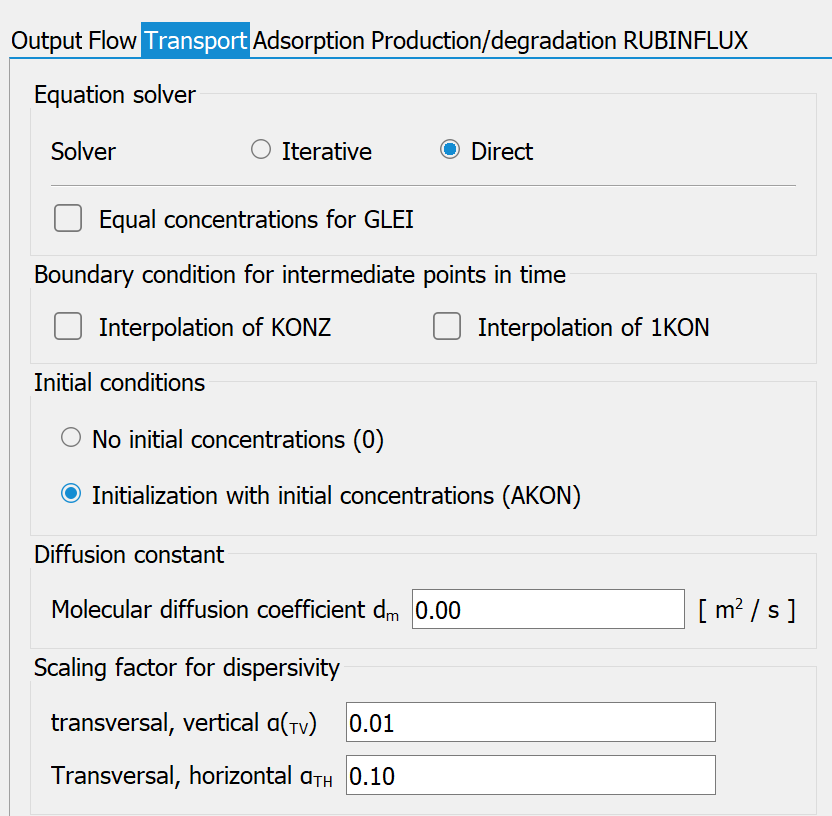Initial and boundary conditions
Fixed concentrations: Attribute 1KON, boundary condition 1st type, specifies a fixed concentration. In the example, the selection of this boundary condition is necessary to represent the permanent constant pollutant source.
Inflow concentrations: Attribute KONZ [kg/kg]: The KONZ data type can be used to assign concentrations (node by node) to defined inflows (from KNOT, FLAE, RAND, RANQ, RANX) and calculated inflow rates (leakage rates, mass flow rates from fixed potential heads). Example: The surface of a landfill contains a known amount of pollutant (KONZ), which is only dissolved by a certain amount of precipitation (FLAE).
Initial concentration: attribute AKON [kg/kg]: This is used to define an initial state (node by node) for a transient calculation. AKON works analogue to the initial potential heads (EICH) of the flow calculation.
Material characteristics
Porosity: If the porosity PORO is not explicitly specified in the mesh file, the default value PORO = 0.2 is used for the calculation.
Dispersivity: The longitudinal dispersivity αL can be explicitly defined together with the transverse dispersivity αT in the Calculate
 Mass transport computation and then clicking on the "Advanced"
Mass transport computation and then clicking on the "Advanced"  "Transport" tabs”.
"Transport" tabs”.
The following input window shows the possible entries in the advanced settings of the mass transport:
The attributes 1KON (or KONZ), DISP and PORO are necessary for a transport calculation.
 Transient input for the mass transport
Transient input for the mass transport

